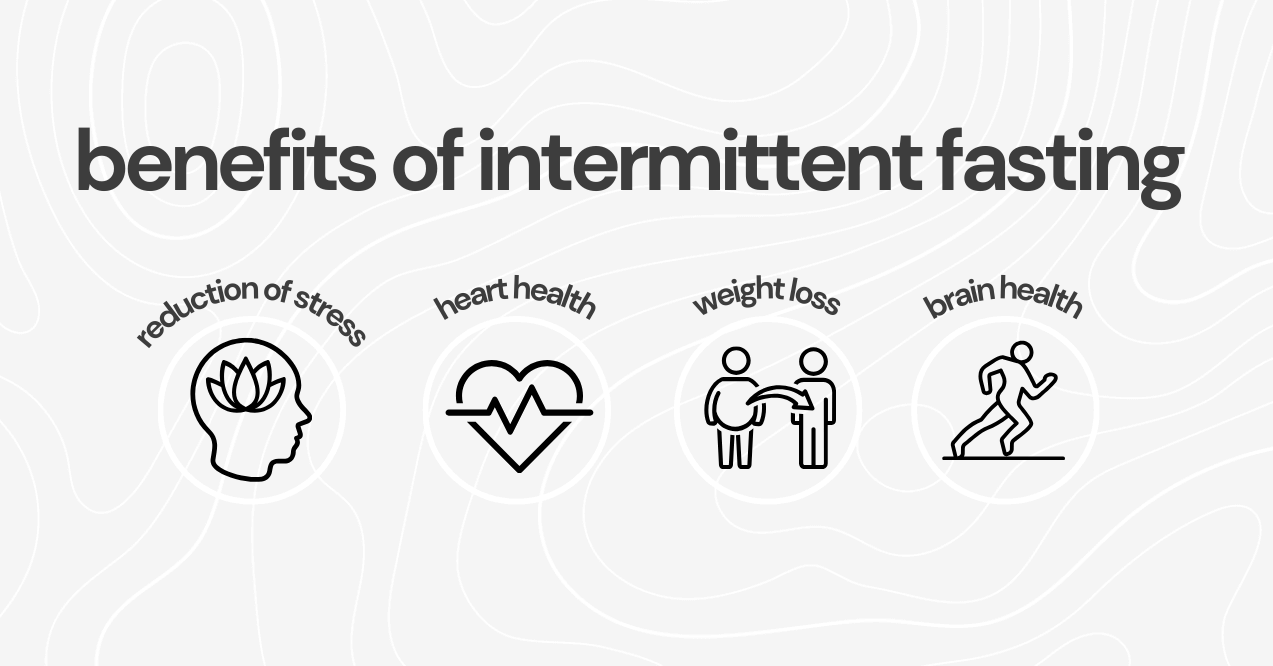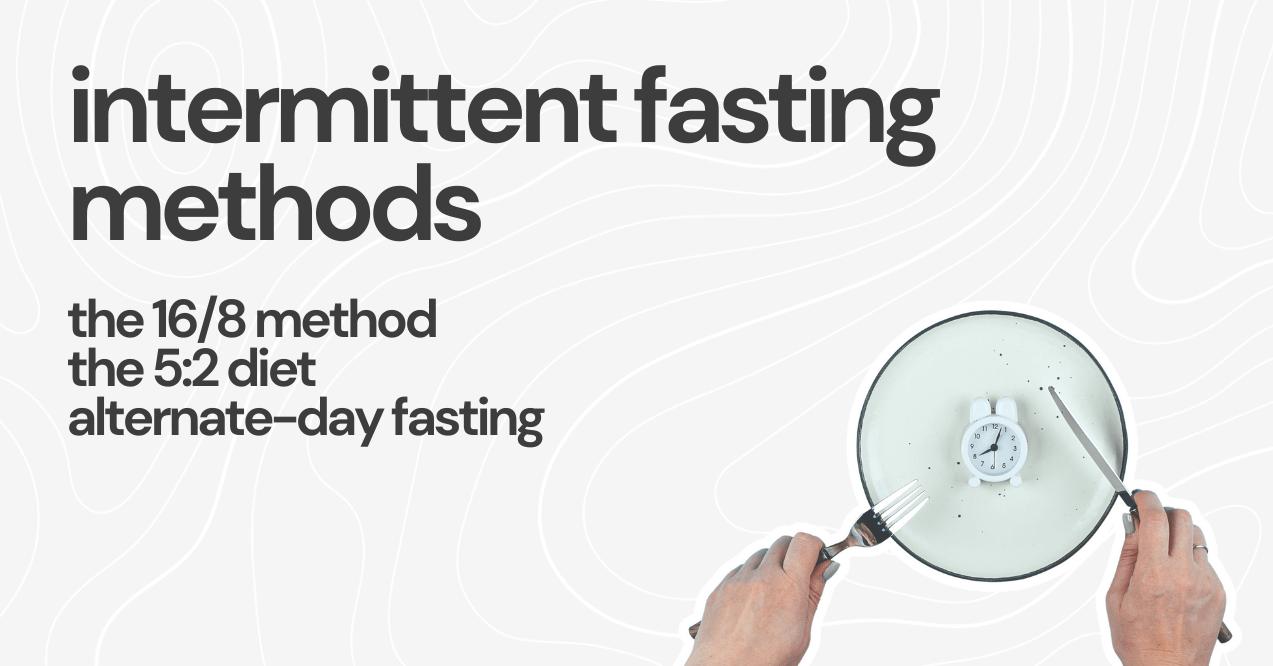Intermittent Fasting Calculator
Crack the code to a healthier you with our easy-to-use intermittent fasting calculator. It’s your go-to guide for creating a fasting plan that works for anyone, no matter your age.
What Is Intermittent Fasting?
Intermittent fasting is all about timing your meals. It’s a simple routine: knowing when to eat and when to take a break. Your body needs fuel during eating periods, but it also benefits from fasting. This break allows your body to clear out toxins and recharge. To maximize the benefits, consider incorporating superfood powders for added nutrients during eating periods and performance supplements to support energy and recovery. Stick with it, and you’ll likely see better results.
Is Intermittent Fasting Healthy?
Yes, intermittent fasting can be great for your health! It’s been shown to boost energy levels and improve brain function. Giving your digestive system a rest lets your body focus on other important tasks. However, fasting might be tough at first, with possible hunger and trouble concentrating. Always check with your doctor to ensure it’s safe for you and to help set up a fasting schedule.
If you’re looking to speed up your metabolism while fasting, you might consider following a Fast Metabolism Diet during your eating windows. This involves consuming nutrient-dense foods, lean proteins, and complex carbohydrates to keep your metabolism active even after fasting periods. Combining this approach with Vitamins to Boost Metabolism, such as B vitamins, magnesium, and iron, can further enhance your body’s ability to burn calories efficiently.
How Does Intermittent Fasting Calculator Help With Weight Loss?
Intermittent fasting is a powerful tool for weight loss. By limiting your eating window, you naturally eat fewer calories, leading to weight loss. But that’s not all! Fasting pushes your body to burn fat for energy, further helping you slim down. Plus, in the short term, fasting can boost your metabolism, helping you burn calories more effectively.
Is Intermittent Fasting Really Different for Women?
Fasting might not be a good approach for all women. Women’s bodies handle ovulation as well as many hormonal changes. Such factors affect how their bodies respond to fasting behaviors.
Intermittent fasting impacts a woman’s ovulation cycles. It reduces the female body’s synthesis of estrogen hormones. This decreased hormone level alters the menstrual cycle. Therefore, you should speak with a doctor before beginning the fasting procedure.

Benefits of Intermittent Fasting

This routine can transform your life. Let’s examine a few advantages of intermittent fasting:
Reduction of Oxidative Stress and Inflammation
Intermittent fasting can help reduce oxidative stress and inflammation. Regular fasting periods trigger your body’s natural repair processes, clearing out toxins from your blood and lowering stress and inflammation.
Heart Health
If you fast consistently, it will treat your body well. Studies show that this eating pattern benefits your heart’s health. Moreover, abiding by it lowers your lipid levels, improving your heart health. So, give your heart some love by fasting consistently.
Weight Loss
People often use intermittent fasting to lose weight. It helps them eat fewer calories, leading to weight loss. Fasting also speeds up fat burning, helping shed those extra pounds. An intermittent fasting calculator can guide you on the best schedule to maximize your results.
Brain Health
Fasting is your secret weapon to improving brain health. Research shows it improves the cognitive functioning of the mind. It also helps you increase mental clarity, as some people experience improved memory when they fast. As you age, you will need regular fasting sessions to sharpen your mind.
Intermittent Fasting Methods

There are several ways to approach intermittent fasting, each with its own pros and cons. Let’s dive into some of the most popular methods.
The 16/8 Method
The 16/8 method is a favorite for beginners because it’s easy to fit into daily life. You fast for 16 hours and eat during an 8-hour window. It’s flexible, allowing you to choose your eating and fasting times based on your schedule. An intermittent fasting calculator can help you plan the best timing for you.
The 5:2 Diet
The 5:2 diet works well if you’re good at planning. You eat normally for five days a week and then limit your calorie intake to 500–600 calories for the other two days. While it may seem strict, many people find it manageable because they still get to eat something on the fasting days. Using a fasting calculator can help you determine the right amount of calories for those two days.
Alternate-Day Fasting
Alternate-day fasting is for those who like a challenge. You alternate between days of regular eating and days of fasting. This method can be effective for weight loss, but it requires careful planning, so it’s not for everyone. Consistency is key here, and a fasting weight loss calculator can help you track your calories on non-fasting days.
Is Food Important While Fasting?
Yes, what you eat during your eating windows is crucial. To keep your energy up, focus on nutritious meals rather than junk food. Eating nutrient-rich foods at the right times will help you reach your goals.
To optimize your fasting results, consider incorporating greens for smoothies into your routine. Blending superfood greens like spinach, kale, chlorella, and wheatgrass into a smoothie provides essential nutrients while being light on digestion.
What Can I Eat and Drink During Fasting?
Use the time you spend eating to recharge your body with nutritious foods. Choosing options like fruits, vegetables, whole grains, lean proteins, healthy fats, low-fat dairy, and legumes can help you feel more energized during this period. You might even be wondering does bone broth breaks a fast? While it’s light and nutrient-rich, many consider it a suitable option during fasting, as it can provide nourishment without significantly affecting your fasting state.
During fasting windows, many people explore different beverages. While black coffee is allowed, some wonder ‘does coffee make you bloated‘ as it can affect comfort during fasting. Others ask ‘does kombucha help with bloating‘ when considering probiotic drinks for their eating windows. Those who exercise during fasting should also be mindful of bloating after a workout, which can be managed through proper hydration and timing of meals in your eating window.
Is Skipping Breakfast Unhealthy?
Depending on your schedule, intermittent fasting can make you skip breakfast. Skipping breakfast is not that bad if you gain enough nutrients from the food you eat when fasting. The foods should have high nutrients to make the whole process successful. However, if you are feeling sluggish, include a light breakfast.
How Often Should I Eat While Fasting?
An intermittent fasting calculator can help you plan your eating sessions effectively. For the 16/8 method, it’s best to spread your meals wisely during the 8-hour eating window, typically having two meals to fit the routine. You might also experiment with different timelines, like eating between noon and 8 PM, to see what works best for you.
In the 5:2 method, the five regular eating days should meet your daily calorie needs, so aim for three balanced meals each day. On the two fasting days, you’ll have just one substantial meal to keep you satisfied.
With the alternate-day method, you can have one moderate-sized meal on fasting days, knowing that the next day allows for regular eating with three nutrient-rich meals to meet your calorie needs.
How Many Calories Should I Eat?
Finding your daily caloric intake makes your fasting process suitable. The goal of the 16/8 approach is to meet your daily energy requirements in eight hours. For this, you need to consume 1600–3000 calories per day.
Aim for 500–600 calories on two days when on the 5:2 diet. On alternate-day fasting, you also need to consume foods providing less than 500 calories during the off days. An intermittent fasting calculator can help determine how many you need daily. The calculations should take into account your age and activity level on non-fasting days.
Does Fasting Slow My Metabolism?
The fasting period does affect your body’s metabolism. Research shows that a 48-hour fast improves this bodily process by 14%. In this period, your body enters ketosis, a state that burns fat for energy.
However, prolonged fasting can slow down your metabolism over time. As you lose weight through extended fasting, your body’s metabolic rate may decrease. It’s important to be aware that changes in your eating patterns can impact your metabolism.

How to Manage Hunger During Fasting?
Managing hunger can be challenging during fasting. To succeed, avoid common hunger triggers. Reducing stress and staying busy can help you get through fasting periods more comfortably. Certain smells can also trigger hunger, so try to steer clear of tempting environments. Remember, hunger is a temporary feeling that will pass.
How Fast Will I See the Results of Intermittent Fasting?
Results from intermittent fasting vary for everyone. Some people notice improved energy and focus within a few days, while weight loss and other changes might take several weeks. Patience is key to seeing the benefits.
Common Mistakes to Avoid
While fasting can improve your well-being, it’s important to avoid common mistakes. One major mistake is mixing different fasting methods. Choose one approach and stick with it. Consistency is essential for the best results.
What Are the Most Common Misconceptions About Intermittent Fasting?
Misconceptions can hold you back from experiencing the benefits of fasting. Here are some common myths:
- Fasting puts your body into starvation mode.
- It slows down your metabolism.
- Fasting causes muscle loss.
- You need to eat small, frequent meals to lose weight.
- You can’t consume anything during fasting periods.
In reality, these are just myths. You can drink water, black coffee, and unsweetened tea while fasting, so dive in and start your journey with confidence.
Conclusion
In conclusion, fasting is a versatile approach to improving overall health and managing weight by alternating between eating and fasting periods. With benefits such as enhanced metabolism, reduced inflammation, and improved heart health, fasting has become a popular choice for many. Methods like the 16/8 plan, the 5:2 diet, and alternate-day fasting cater to varying lifestyles and preferences. To maximize results, prioritize nutrient-dense meals during eating windows and consult a healthcare provider to ensure the method aligns with your health needs. For personalized guidance, try our free fasting calculator to determine your ideal schedule.
Females are affected by fasting, but the impact differs for every woman. This eating pattern can alter the hormone levels in their bodies. Additionally, it can disrupt the menstrual cycle. Therefore, consulting a doctor before fasting is paramount.
If you are an adult with good health, you can start fasting. On the other hand, those with a history of eating problems and expectant women should refrain from it.
You risk losing muscles if you don’t eat proteins when fasting. Therefore, your diet should have enough protein to avoid losing muscles when undertaking this approach.
Advertisement. This site offers health, wellness, fitness and nutritional information and is designed for educational purposes only. You should not rely on this information as a substitute for, nor does it replace, professional medical advice, diagnosis, or treatment. If you have any concerns or questions about your health, you should always consult with a physician or other health-care professional. Do not disregard, avoid or delay obtaining medical or health related advice from your health-care professional because of something you may have read on this site. The use of any information provided on this site is solely at your own risk.







